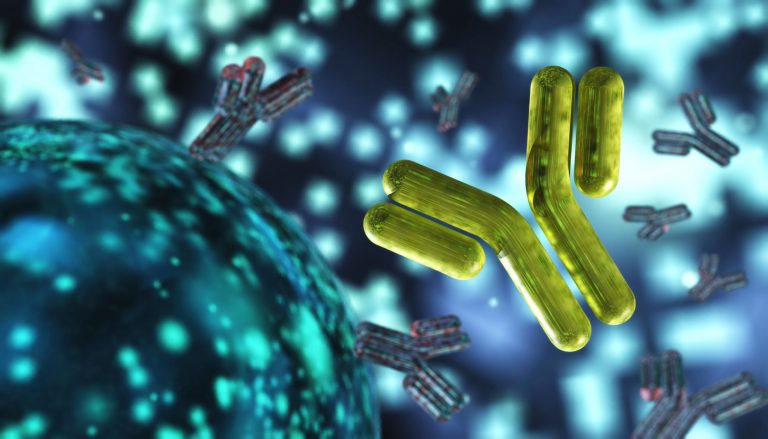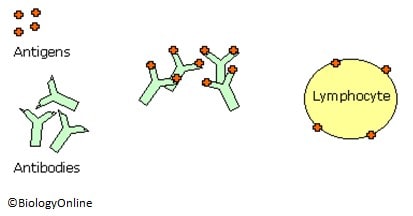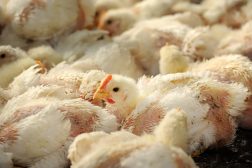Passive and Active Types of Immunity

3D rendering of an antibody
Table of Contents
The previous tutorial investigated the role of white blood cells in phagocytosis. White blood cells are also responsible for antibody formation. Certain antibodies are synthesized in response to the presence of certain antigens
Specific Immune Responses
Lymphocytes are a type of white blood cell capable of producing a specific immune response to unique antigens. Some of these lymphocytes are capable of entrapping antigens on their surface.
When lymphocytes catch these antigens they can then begin to code for unique antibodies, structures that are capable of catching these antigens.
The lymphocytes code for a particular antibody on response to a particular antigen. The antibody that is formed will be capable of catching free antigens, therefore, neutralizing the threat as seen below.

B lymphocytes (B Cells) produce free moving antibodies as above while T lymphocytes (T Cells) produce antibodies on their surface.
Types of Immunity
When attacked an organism has several means in which it can prepare to defend itself in event of an attack.
- Active Immunity – Vaccines are used for health purposes to expose our bodies to a particular antigen. These antigens are usually killed or severely weakened to decrease their potency. After destroying these pathogens, the body stores some T cells as memory cells, due to the fact the code for a particular antigen and can be when needed. This memory in T cells can be a means of artificially acquiring immunity while a genuine attack by a pathogen is a naturally acquired type of immunity.
- Passive Immunity – This is where immunity to particular antigens as a result of genetic traits passed on from parents rendering the offspring immune to a particular pathogenic threat.
All of the information on this and the previous page are common methods of defense in red-blooded animals, the next tutorial investigates the defensive means of plants.
You will also like...

Genetic Information and Protein Synthesis
Genes are expressed through the process of protein synthesis. This elaborate tutorial provides an in-depth review of the..

Developmental Biology
Developmental biology is a biological science that is primarily concerned with how a living thing grows and attains matu..

Darwin and Natural Selection
This tutorial investigates the genetic diversity in more detail. It also delineates how certain alleles are favored over..

Dominance
This tutorial presents Gregor Mendel's law of dominance. Learn more about this form of inheritance and how it can be pre..

Selective Breeding
Gregor Mendel's studies into Monohybrid and Dihybrid crossing and Charles Darwin's study of evolution and natural select..

Fish
The sea was teeming with life. Eventually, through reproduction and continued variation, fish came about. There are over..
